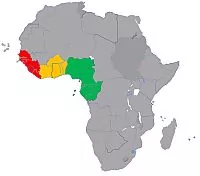Over the next month, President Cyril Ramaphosa will face at least three hurdles that will determine his political future and the nature of governance in South Africa over the medium term – (a) The ruling African National Congress (ANC) is expected to decide whether he should step aside until criminal investigations into his role in the Phala Phala scandal are complete (Phala Phala background here), (b) an independent panel formed by parliament is preparing its findings on whether the president committed an impeachable offence in the matter, and finally, (c) former health minister Zweli Mkhize and others will contest with him in an upcoming conference where the party will elect its next president.
a. Integrity Commission
Ramaphosa faced the ANC's Integrity Commission last month to defend himself regarding Phala Phala, and the commission is expected to announce findings from its probe this month after briefing the party's national executives on 11 November.
The allegations against Ramaphosa are so serious that all three of the party's living ex-presidents have suggested that he should step aside and that the party should prepare to deal with the fallout of his exit. The party's treasury-general Paul Mashatile also said this week, "If the integrity commission is of the view that [the serious allegations] are damaging to the party, and takes the decision that you should step aside, you should do so."
However, Ramaphosa's allies in the commission could influence it to delay reaching a decision on the matter until other events below have passed. Local newspapers even suggest that some members of the commission have declined to approve a draft report asking the president to withdraw from office until a probe is complete.
b. Impeachment process
On 5 August, Speaker Nosiviwe Mapisa-Nqakula approved a motion by the African Transformation Movement to impeach President Ramaphosa according to Section 89 of the constitution for his alleged role in Phala Phala. The National Assembly then formed a panel led by former chief justice Sandile Ngcobo to examine whether the president has committed an impeachable offence. This panel will conclude its own investigations on 17 November and is expected to announce its verdict before the month ends.
Even if Ngcobo's panel finds Ramaphosa culpable, the ANC can block his impeachment because it has approximately 58% of seats in the National Assembly. The party bailed out Ramaphosa's predecessor Jacob Zuma this way when that leader faced impeachment in 2016, but the procedure for allowing an independent panel to establish an impeachable offence had not been set at the time. Now, a negative verdict from Ngcobo's panel alone would severely damage Ramaphosa's legitimacy and likely force him to resign. See: Ramaphosa impeachment vote process begins in South Africa.
c. ANC elective conference
The ANC will hold a conference on 15-20 December to elect new national leaders. Ramaphosa will be standing for re-election as president, and his opponents there will include his former health minister Mkhize who is backed by the party's leadership in KwaZulu-Natal. This is the province where the party has its largest membership. However, Ramaphosa will be most likely to win if he survives Phala Phala up to that point – even Mkhize has a tainted record. He resigned as health minister after he was accused of corruption last year.
In all scenarios, Ramaphosa is unlikely to emerge with enough political capital to pursue proposed economic and governance reforms. See for instance: South Africa seeks SOE reform as parliament probes airline sale. National elections are due in 2024, and the political priority in the interim will be managing divisions in the party to forestall a further decline in the ANC's majority in the national parliament. The ruling party's share of votes in municipal elections held last year was only 46%. This was the first time the party would fail to win at least 50% of national elections since it came to power in 1994.
The content of this article is intended to provide a general guide to the subject matter. Specialist advice should be sought about your specific circumstances.

